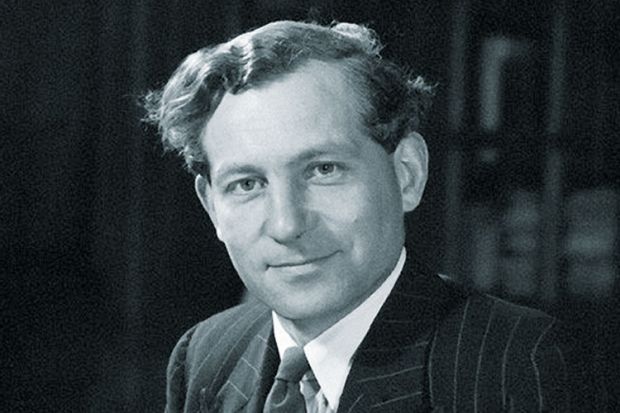Owen Chadwick was born in Bromley, Kent, in 1916 and educated at Tonbridge School. He came to St John’s College, Cambridge in 1935 to first read Classics and later history and theology.
While at Cambridge he was a keen rugby player and went on to captain the university team in his third year. During the summer of 1936, he toured Argentina with the informal British Lions team.
After graduating he moved to Oxford where he was ordained. He held a curacy in Huddersfield and later became chaplain at Wellington College in Berkshire.
In 1947, he returned to Cambridge to be dean of chapel at Trinity Hall. Professor Chadwick was elected as master of Selwyn College in 1956. In 1958, he became Dixie professor of ecclesiastical history and Regius professor of modern history in 1968. His major piece of work was the two-volume The Victorian Church (1966 and 1970) but other books included The Secularization of the European Mind in the Nineteenth Century (1975) and, with his brother Henry, he edited the Oxford History of the Christian Church.
He held the vice-chancellorship of Cambridge from 1969-71 and was head of the institution at the time of the Garden House Hotel riot in 1970, the only serious disturbance in the city during the student unrest of the period.
In the early 1980s, he held the presidency of the British Academy, gained a knighthood and was awarded an Order of Merit. After retiring from his Cambridge posts, he held the chancellorship of the University of East Anglia from 1984 to 1994. In his retirement he continued to live in Cambridge and returned to Selwyn College regularly for chapel and major college events.
John Morrill, a fellow of Selwyn College and retired professor of Irish history, described Professor Chadwick as an “effortlessly kind, effective, generous and unassuming” man.
“What is so startling about Owen was not just the range of his interests and talents – as a historian concerned with the Christian faith under intellectual or moral stress across 1,600 years, as a churchman who reformed the Church of England, as an academic who transformed a slightly dowdy college, as a president of the British Academy who kept Margaret Thatcher at bay, as a sportsman – but how he combined that and much more with always seeming to have time to engage with and take an interest in everyone he met,” he said.
Professor Chadwick died peacefully on 17 July and is survived by his four children, his wife Ruth having died in January this year.
